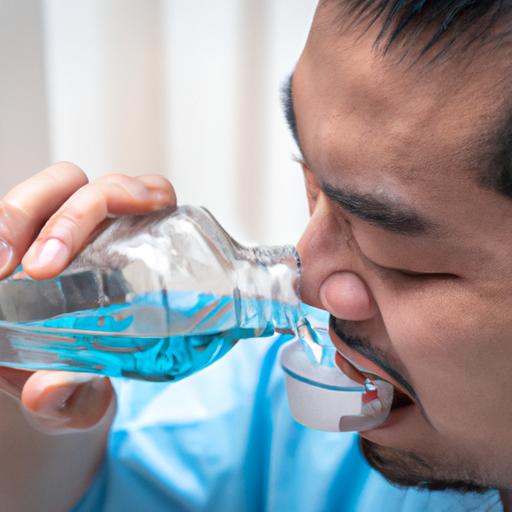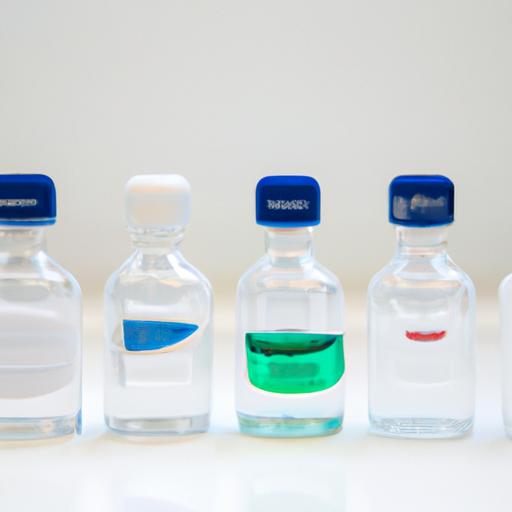
Discover the benefits of using Mouthwash for post-wisdom tooth removal care. Learn how to choose the right mouthwash and proper techniques for optimal healing.
Introduction
If you’ve recently undergone wisdom tooth removal, congratulations on taking the necessary step towards better oral health! Now, as you embark on the journey of post-operative care, it’s crucial to prioritize proper aftercare practices to ensure a smooth and speedy recovery. Among the various tools available for effective post-wisdom tooth removal care, mouthwash emerges as a standout option. In this article, we’ll explore the benefits of using mouthwash, how to choose the right one, and the proper techniques for incorporating mouthwash into your oral hygiene routine.

Using mouthwash for post-wisdom tooth removal care enhances healing and reduces infection risk.
Benefits of Using Mouthwash for Post-Wisdom Tooth Removal Care
Reducing Bacteria and Infection Risk
After wisdom tooth extraction, the surgical site is susceptible to bacterial colonization, which can lead to infections and complications. Using an appropriate mouthwash can significantly reduce the number of bacteria in your mouth, helping to mitigate the risk of post-operative infections. Mouthwashes with antiseptic and antibacterial properties, such as chlorhexidine-based solutions, are particularly effective in this regard.
Minimizing Swelling and Inflammation
Swelling and inflammation are common side effects following wisdom tooth removal. However, the proper use of mouthwash can aid in reducing these discomforts. Many mouthwashes contain anti-inflammatory ingredients like aloe vera or chamomile, which can provide relief and promote faster healing. Regular rinsing with a soothing mouthwash can help soothe the surgical area, alleviate swelling, and enhance your overall comfort during recovery.
Promoting Faster Healing
A key objective of post-wisdom tooth removal care is to expedite the healing process. Mouthwashes formulated specifically for post-operative care often contain ingredients like vitamin E or zinc, which are known to support tissue repair and accelerate healing. By incorporating such mouthwashes into your daily routine, you can provide your body with the necessary tools to heal more efficiently, reducing the overall recovery time.
Preventing Dry Socket
Dry socket, a condition where the blood clot that forms after tooth extraction becomes dislodged or dissolves prematurely, can be incredibly painful and delay the healing process. Fortunately, certain mouthwashes can play a vital role in preventing this condition. Mouthwashes that promote clot formation and provide a protective barrier over the surgical site can significantly reduce the risk of developing dry socket.

Choosing the right mouthwash is crucial for effective post-wisdom tooth removal care.
Choosing the Right Mouthwash for Post-Wisdom Tooth Removal Care
When it comes to selecting a mouthwash for your post-wisdom tooth removal care routine, several factors should be considered to ensure optimal results.
Alcohol-Free vs. Alcohol-Based Mouthwash
While alcohol-based mouthwashes are effective in killing bacteria, they can cause dryness and irritation, which may hinder the healing process. Therefore, it is generally recommended to opt for alcohol-free mouthwashes to minimize any potential discomfort.
Antiseptic and Antibacterial Properties
To maximize the benefits of mouthwash for post-wisdom tooth removal care, look for products that have antiseptic and antibacterial properties. Ingredients like chlorhexidine, cetylpyridinium chloride (CPC), and hydrogen peroxide are known for their ability to combat bacteria effectively and reduce the risk of infection.
Recommended Ingredients for Post-Operative Care
Certain ingredients are particularly beneficial for post-operative care. Look for mouthwashes containing aloe vera, chamomile, vitamin E, zinc, or saline solution. These ingredients can soothe the surgical site, reduce inflammation, promote healing, and provide additional protection against potential complications.
Consultation with a Dentist
To ensure you choose the most suitable mouthwash for your specific needs, it is always wise to consult with your dentist or oral surgeon. They can provide personalized recommendations based on your oral health history, the complexity of your extraction, and any underlying conditions you may have.
For more information on mouthwashes and their benefits, you can visit this helpful resource.

Proper rinsing technique ensures effective use of mouthwash for post-wisdom tooth removal care.
How to Properly Use Mouthwash for Post-Wisdom Tooth Removal Care
Now that you’ve chosen the right mouthwash for your post-wisdom tooth removal care routine, it’s essential to know how to use it effectively.
Timing and Frequency of Mouthwash Usage
To derive the maximum benefit from your mouthwash, rinse your mouth as recommended by your dentist or oral surgeon. Typically, this involves rinsing with mouthwash after meals and before bed. However, be cautious not to overuse mouthwash, as excessive rinsing can disrupt the natural healing process.
Proper Rinsing Technique
To ensure thorough coverage, begin by swishing the mouthwash around your mouth for about 30 seconds. Make sure to reach all areas, including the surgical site, but be gentle to avoid dislodging the blood clot. Afterward, spit out the mouthwash, but avoid rinsing with water immediately afterward to allow the active ingredients to continue their beneficial effects.
Precautions and Potential Side Effects
While mouthwash is generally safe for post-wisdom tooth removal care, it’s important to follow the instructions provided and be aware of any potential side effects. Some individuals may experience temporary discoloration of the teeth or a tingling sensation in the mouth. If you experience any persistent or severe side effects, consult your dentist immediately.
Integration of Mouthwash into Overall Oral Hygiene Routine
Remember that mouthwash is not a substitute for good oral hygiene practices. It should be used in conjunction with regular brushing, flossing, and maintaining a healthy diet. By incorporating mouthwash into your overall oral hygiene routine, you can optimize your post-wisdom tooth removal care and promote long-term oral health.
Conclusion
Mouthwash is a valuable tool in post-wisdom tooth removal care, providing numerous benefits such as reducing bacteria, minimizing swelling, promoting faster healing, and preventing complications like dry socket. By choosing the right mouthwash and incorporating it into your daily routine with proper techniques, you can enhance your recovery and ensure optimal oral health. Remember to consult with your dentist for personalized recommendations and follow a comprehensive oral hygiene regimen. Embrace the power of mouthwash and embark on a journey towards a healthier, happier smile.
Note: The information provided in this article is for educational purposes only and should not replace professional dental advice. Always consult with your dentist or oral surgeon for personalized recommendations and guidance.




